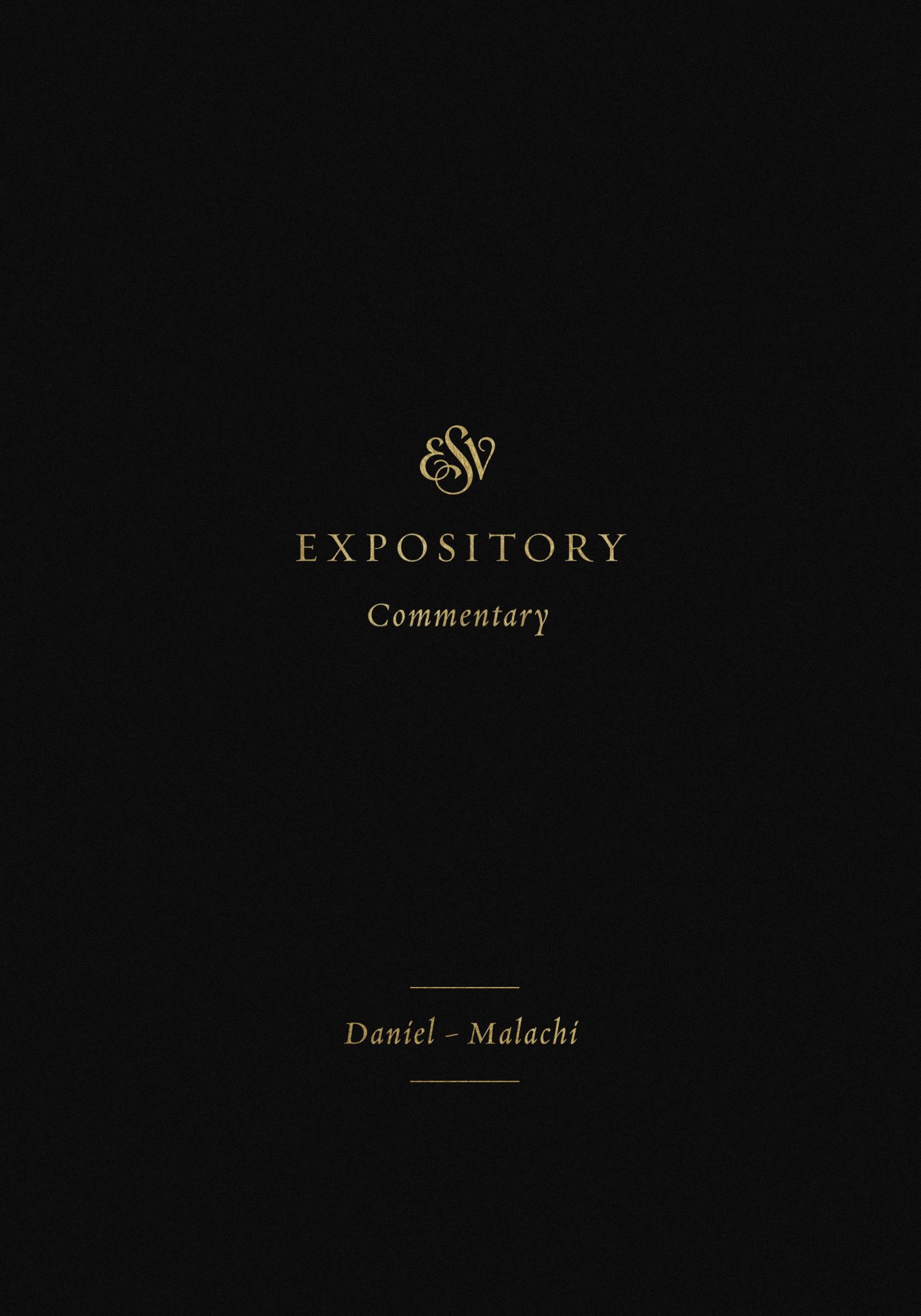In 2018, Crossway released the first three volumes of their Expository Commentary with the goal of creating a resource that is “widely accessible, theologically sound, and pastorally wise.” Lofty goals and high expectations are nothing new for Crossway. In recent years they have steadily produced resources that are beautifully designed, thoughtfully structured, and biblically faithful. The Expository Commentary seems to be no exception.
The Build
These volumes are well built with a classically designed hardcover (no dust jacket). They lay flat on the desk without the pages fanning or turning. The pages are made from a quality paper that is above that of many other series. Additionally, the pages are slightly off-white to reduce glare and eye fatigue.
These volumes are not particularly thick, but they are taller and wider than most. These generous dimensions provide room in the margins for anyone wanting to make simple notes.

ESV Expository Commentary
ESV Expository Commentary
One particularly interesting feature within the introductory material is the section on preaching the text. This section provides insight into various considerations pastors should be aware of as they prepare to bring a particular book to a congregation.
In the spirit of producing a book with the user in mind, Crossway has even provided a ribbon page marker. Those who appreciate a well-built book will appreciate the extra effort that has gone into producing this series.
The Introductions
While the Pastoral Epistles and the Epistles of John are introduced as units, every other book of the Bible will receive its own introduction. These introductions provide pertinent information on the author, audience, and purpose of each book. When necessary, contributors address the historical and interpretive difficulties that come with the study of ancient texts. However, academic controversies are not the focus of the EC, so discussions of this nature are intentionally efficient.
The theology of each book is considered in two parts. The general theology is discussed first and then special attention to the book’s relationship to the whole of Scripture and the person of Christ is presented. The latter exemplifies Crossway’s desire to make the EC a series that is focused on both the written Word (graphe) and the Word Made Flesh (logos).
One particularly interesting feature within the introductory material is the section on preaching the text. This section provides insight into various considerations pastors should be aware of as they prepare to bring a particular book to a congregation.
The Content
It can be the case that the information in a commentary can be grammatically, historically or theologically fascinating without being homiletically useful. Across the board, I have found the comments to be enlightening without becoming dry or cumbersome. Benjamin Merkle’s handling of Ephesians chapter five, for example, is among the best articulations of a complementarian reading that I have yet to come across.
In addition to the useful nature of the comments, the responses display Crossway’s desire to keep the EC “application-minded.” More than simply applicable, readers will find that the responses are genuine expressions of men seeking to contribute to the vitality of the church. This is highlighted in Jason Meyer’s thoughts on Philippians which are a wonderfully encouraging read. His work shows a personal conviction to see the Word of God leading the people of God into the work of God for the glory of God. Praise God!
The content of this series is best categorized as “pastoral.” Anyone searching for technical/academic content might find the EC lacking. Those looking for something devotional will likely find it to be a bit wordy. In the spirit of a pastoral commentary, this series balances information and application in order to practically equip church leaders. This does not mean that the reader needs to be a pastor to make use of this series.
Part of Crossway’s vision for the EC is that it would be useful to a broader audience within the church. This is possibly the greatest strength of the EC. For example, discussions on biblical languages are limited. When such a discussion is useful, ancient terms are commonly transliterated to improve accessibility to those readers without a seminary background. Likewise, the contributors do not presume a theological education on their readers. The content of the EC is an effective blending of information useful to those who have been studying for years yet accessible to those just getting started.
The Theology
The series describes itself as being “broadly reformed.” That the contributors are writing from a reformed tradition is evident, but this should not be considered an obstacle for those coming from another tradition. The goal of the EC is exposition and not systematics.
In addition to labelling the EC as broadly reformed, it should also be noted that the authors are doctrinally conservative and evangelical without becoming denominationally homogenous. The breadth of thought is consistent to those expressed in such groups as The Gospel Coalition and Together for the Gospel.
The Recommendation
So far, the contributors have done well to execute Crossway’s vision for a commentary series that offers something for everyone.
For the seasoned pastor, this series is a great “meat and potatoes” resource. The EC will serve to establish a vision for pastors entering into an expositional series and a reference for continuity along the way. Pastors will also find it a useful reference for explaining complex issues in simple yet effective ways. The EC is not going to render your favourite commentaries redundant or obsolete, but it could become a tool that you reach for on a regular basis.
For students, young ministers, small-group leaders, and those interested in but intimidated by the idea of entering into the world of commentaries, the EC is a great place to begin. Purchase the volumes you are studying or the set as a whole. They will be immediately useful, and, over the years, I am convinced these volumes will prove to be a well-worn companion in ministry.
In a world where many publishers are struggling to keep up with a changing media landscape, Crossway is steadily carving a path with resources that are innovative, thoughtful, and faithful. The Expository Commentary seems to be everything that readers have come to expect from Crossway.
The Post-Script
To date, Crossway has only released volumes 7 (Daniel-Malachi), 11 (Ephesians-Philemon), and 12 (Hebrews-Revelation). In October of 2019, Crossway plans to release volume 3 (1 Samuel-2 Chronicles) and volume 9 (John-Acts). The whole of the series is expected to be available by September of 2022.





















